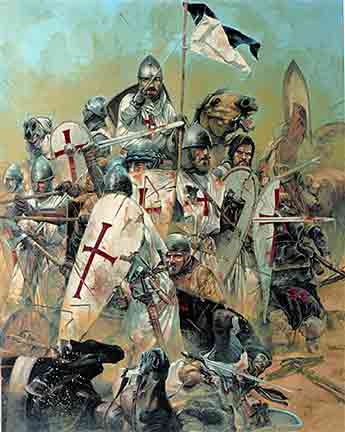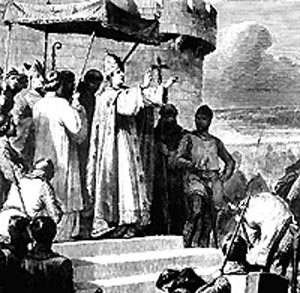"The apostle of the Second Crusade was the great abbot of Clairvaux, St. Bernard. Scenes of the wildest enthusiasm marked his preaching. The scenes that marked the opening of the First Crusade were now repeated in all the countries of the West. St. Bernard, an eloquent monk, was the second Peter the Hermit, who went everywhere, arousing the warriors of the Cross to the defence of the birthplace of their religion. When the churches were not large enough to hold the crowds which flocked to hear him, he spoke from platforms erected in the fields."

The Second Crusade was the second major crusade launched from Europe, called in 1145. Edessa was the first of the Crusader states to have been founded during the First Crusade, and was the first to fall. The Second Crusade was announced by Pope Eugene III, and was the first of the crusades to be led by European kings, with help from a number of other important European nobles. The armies of the two kings marched separately across Europe and were somewhat hindered by Byzantine emperor Manuel I Comnenus; after crossing Byzantine territory into Anatolia, both armies were separately defeated by the Seljuk Turks. Louis and Conrad and the remnants of their armies reached Jerusalem and participated in an ill-advised attack on Damascus. The crusade in the east was a failure for the crusaders and a great victory for the Muslims. It would ultimately lead to the fall of Jerusalem and the Third Crusade at the end of the 12th century.
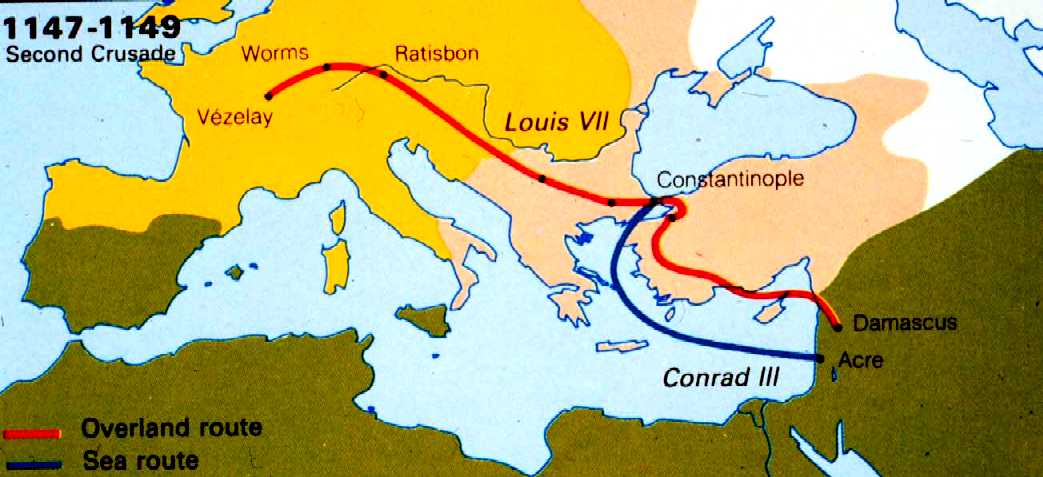
"Unlike the spectacular success of the First Crusade, the Second Crusade, launched in 1145, is generally regarded as a disaster for the Christian West. Even those who took part in the Crusade saw it as a failure."
In the East the situation was much darker for the Christians. In the Holy Land, the Second Crusade had disastrous long-term consequences for Jerusalem. (Book Internet)
Each of the Christian forces felt betrayed by the other. A new plan was made to attack Ascalon. Conrad took his troops to here, but no further help arrived, due to the lack of trust that had resulted from the failed siege. This mutual distrust would linger for a generation due to the defeat, to the ruin of the Christian kingdoms in the Holy Land. After quitting Ascalon, Conrad returned to Constantinople to further his alliance with Manuel. Louis remained behind in Jerusalem until 1149. Back in Europe, Bernard of Clairvaux was humiliated by the defeat. Bernard considered it his duty to send an apology to the Pope and it is inserted in the second part of his Book of Consideration. There he explains how the sins of the crusaders were the cause of their misfortune and failures. When his attempt to call a new crusade failed, he tried to disassociate himself from the fiasco of the Second Crusade altogether. He would die in 1153.

In 1171, Saladin, nephew of one of Nur ad-Din's generals, was proclaimed Sultan of Egypt, uniting Egypt and Syria and completely surrounding the crusader kingdom. Meanwhile the Byzantine alliance ended with the death of emperor Manuel I in 1180, and in 1187 Jerusalem capitulated to Saladin. His forces then spread north to capture all but the capital cities of the Crusader States, precipitating the Third Crusade. (Book Internet)




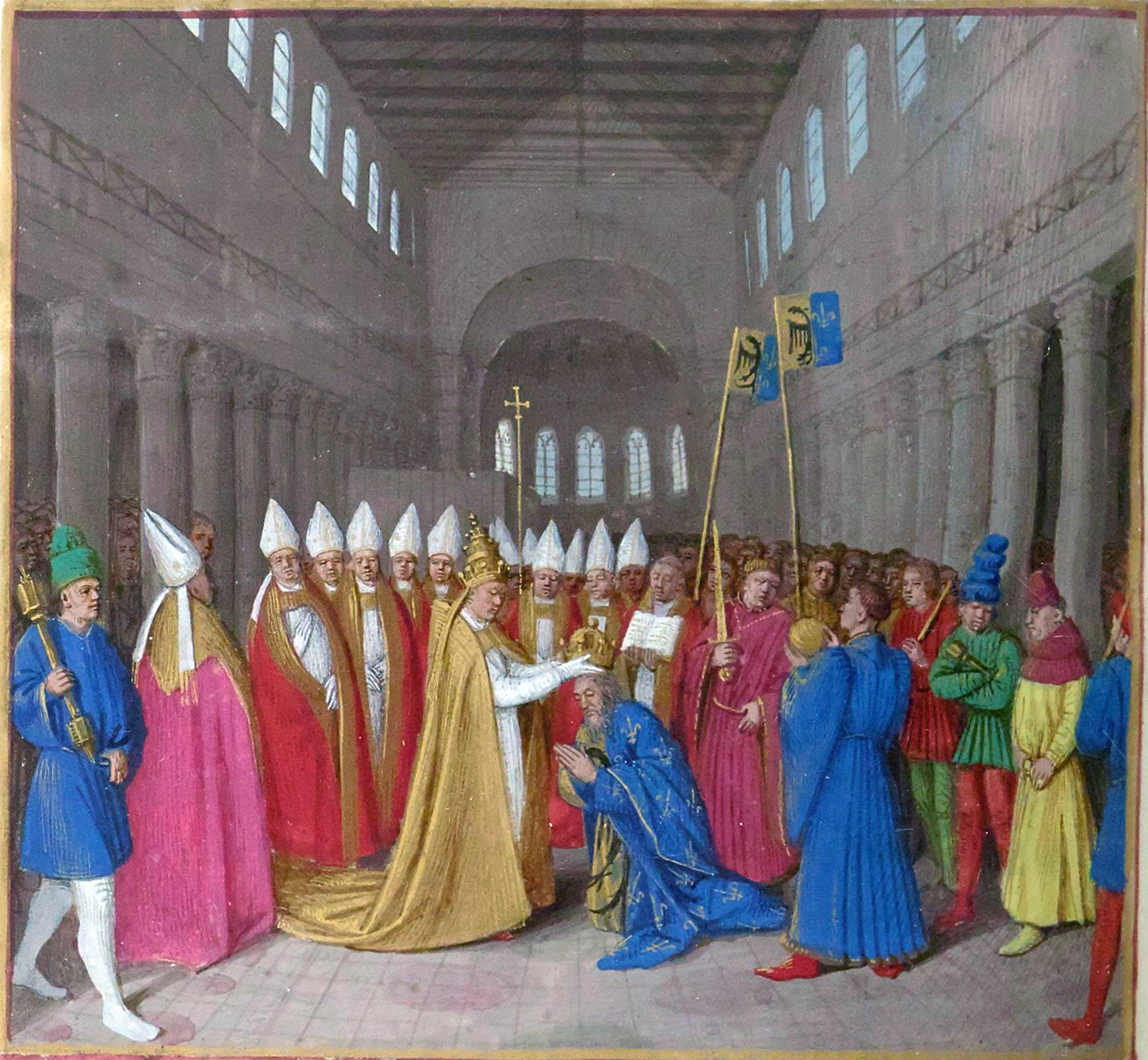
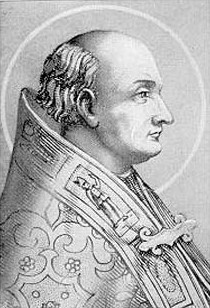

 - - - - - - - - - - - - - - - - - -The Holy Roman Empire - - - - - - - - - - - - - - - - - -
- - - - - - - - - - - - - - - - - -The Holy Roman Empire - - - - - - - - - - - - - - - - - -

